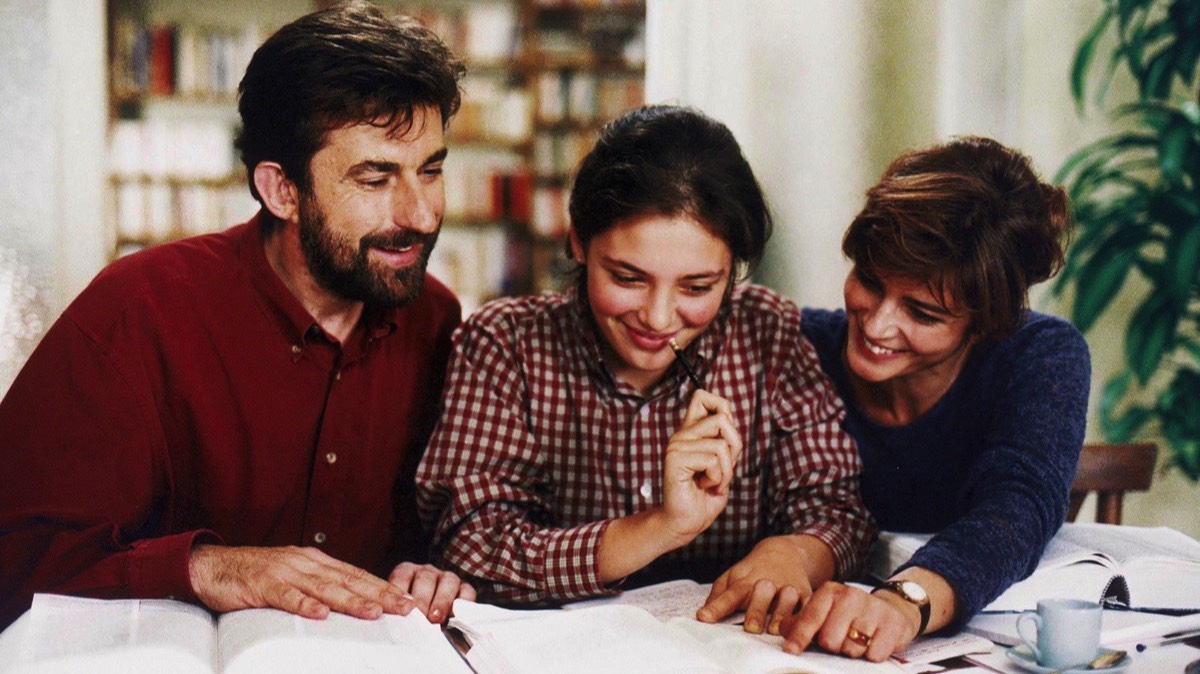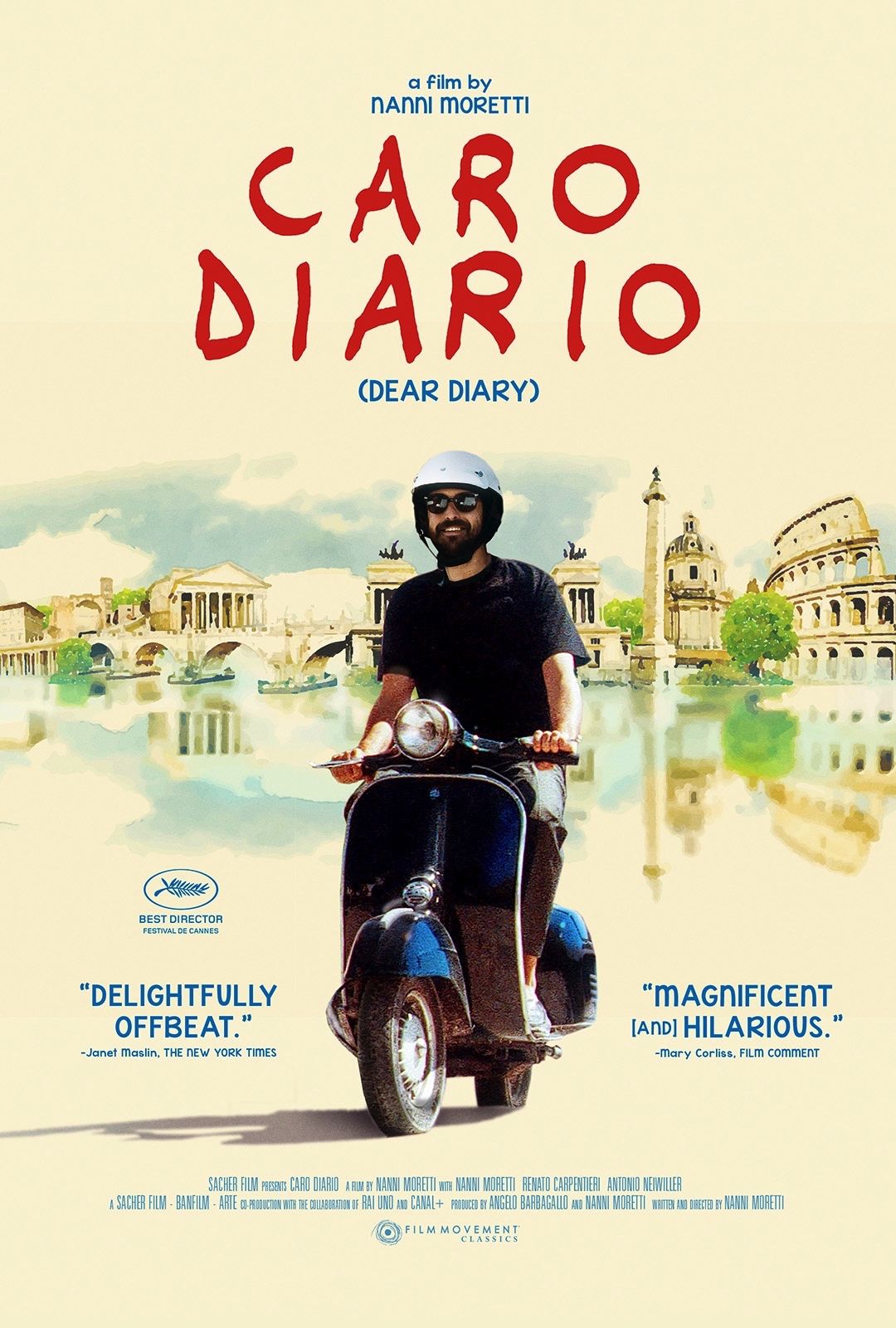"The cinema of Nanni Moretti epitomizes a deeply personal mode of filmmaking. The Italian auteur’s films suggest a confessional journey in which his daily life, political views, and creative experiences coalesce. Addressing issues such as anxiety, grief, and depression within a larger context, Moretti masterfully makes the sensitive ties between the individual and the social visible." - MUBI
Nanni Moretti
Director / Screenwriter / Actor / Producer
(1953- ) Born August 19, Brunico, Trentino-Alto Adige, Italy
(1953- ) Born August 19, Brunico, Trentino-Alto Adige, Italy
Key Production Country: Italy, France
Key Genres: Comedy, Drama, Comedy Drama, Satire, Religious Comedy, Political Satire
Key Collaborators: Angelo Barbagallo (Producer), Franco Piersanti (Composer), Margherita Buy (Leading Actress), Giuseppe Lanci (Cinematographer), Mirco Garrone (Editor), Silvio Orlando (Leading Character Actor), Nicola Piovani (Composer), Dario Cantarelli (Character Actor), Laura Morante (Leading Actress), Federica Pontremoli (Screenwriter), Francesco Piccolo (Screenwriter), Domenico Procacci (Producer)
Key Genres: Comedy, Drama, Comedy Drama, Satire, Religious Comedy, Political Satire
Key Collaborators: Angelo Barbagallo (Producer), Franco Piersanti (Composer), Margherita Buy (Leading Actress), Giuseppe Lanci (Cinematographer), Mirco Garrone (Editor), Silvio Orlando (Leading Character Actor), Nicola Piovani (Composer), Dario Cantarelli (Character Actor), Laura Morante (Leading Actress), Federica Pontremoli (Screenwriter), Francesco Piccolo (Screenwriter), Domenico Procacci (Producer)
"Most Americans have never heard of Nanni Moretti, an Italian- born director-comedian who made his first film in 1973 at age twenty and has been a regular on the international film festival circuit since the early 1980s. This lack of recognition is not without irony, since his style of visually refined physical humor may be linked to the comic techniques of some of America’s most beloved funnymen (including Buster Keaton, Charlie Chaplin, and the Marx Brothers). But Moretti’s cinematic concerns involve much more than making his audiences laugh. He has been compared to Woody Allen in that both filmmakers have intellects, and both fill their work with philosophical deliberations. Moretti is especially concerned with the political situation in his country, and the manner in which politics and politicians affect the lives of citizens." - Rob Edelman (International Dictionary of Films and Filmmakers, 2000)
"Nanni Moretti, Roberto Benigni and Maurizio Nichetti are the trinity of Italian actors/writers/directors who are routinely compared to Buster Keaton and Woody Allen. But Moretti, significantly, has spiced his drollery with ideology, accompanying his pratfalls with politics." - Lloyd Hughes (The Rough Guide to Film, 2007)

The Son's Room (2001)
"Moretti's anti-naturalistic narrative discourse is an assault on the banality of the world and of the cinema, a desperate search for meaning in a violent and fragmented universe… His narration is disjointed, tending increasingly towards open-ended structures and a great economy of means, and making use of his own body as actor." - Gianni Volpi (Encyclopedia of European Cinema, 1995)
"It’s hard to deny Moretti’s position as a successor to the great neorealists — Vittorio De Sica, Federico Fellini, Roberto Rossellini — and the generation of New Wave heroes of the 1960s like Michelangelo Antonioni, Bernardo Bertolucci and Lina Wertmüller who reclaimed and restored Italian cinema after the ravages of fascism. His list of awards and acclaims alone would seem sufficient to secure his international reputation and legacy. But Moretti has never quite been taken as seriously as the generation of New Wavers that preceded him. His films, shot in a straightforward, no-frills style, are less “cinematic” than those of Fellini or Antonioni, critics moan. The wry, ironic humor that pervades much of his work, and his tendency to write, direct and star in most of his movies as a figure, often a film director, who functions as Moretti’s alter ego, got him branded as the “Italian Woody Allen,” a label he has struggled to shake." - Scott Roxborough & Concita De Gregorio (The Hollywood Reporter, 2023)
"While Moretti's unadorned style favours long takes and medium or long shots, he mixes realism and poetry, documentary and fiction to present an imaginative distortion of the world, proffering improbably bizarre images." - Geoff Andrew (The Director's Vision, 1999)
"Nanni Moretti is one of the few Italian directors after Federico Fellini whose name has risen to adjectival status. If there’s such a thing as a “Fellinian Rome,” there’s also a Morettian Italy, and it’s an Italy that is self-conscious, satirical, absurd, at times heartwarming and always full of personality… Moretti’s unique brand of auteur cinema grew out of sociopolitical satire and generous high comedy, with his 1976 feature film debut Io sono un autarchico (I Am Self-Sufficient) growing in popularity over the decades to become a cult classic." - Lucy McCabe (Italy Magazine, 2023)
"Moretti’s approach to filmmaking is also notable for its engagement with political themes, often reflecting his personal leftist leanings. Il Caimano (The Caiman) is an example of this, offering a critique of Silvio Berlusconi’s political reign in Italy." - Bronze Screen Dream
"Perhaps the leading cinematic satirist of our time." - Andrew Sarris
"My screenplays are not a reproduction of my life. Once in a while I invent things." - Nanni Moretti (The Guardian, 2015)
Selected Filmography
{{row.titlelong}}
Nanni Moretti / Fan Club
Javier Porta Fouz, Adrian Martin, Filipe Furtado, Miguel Valverde, Fábio Kawano, Claire Valade, Bruno Podalydès, Frédéric Maire, Fernando E. Juan Lima, Philippe Garrel, Patricia Mazuy, Bertrand Bonello.
Javier Porta Fouz, Adrian Martin, Filipe Furtado, Miguel Valverde, Fábio Kawano, Claire Valade, Bruno Podalydès, Frédéric Maire, Fernando E. Juan Lima, Philippe Garrel, Patricia Mazuy, Bertrand Bonello.
"Fan Club"
These film critics/filmmakers have, on multiple occasions, selected this director’s work within film ballots/lists that they have submitted.
These film critics/filmmakers have, on multiple occasions, selected this director’s work within film ballots/lists that they have submitted.


